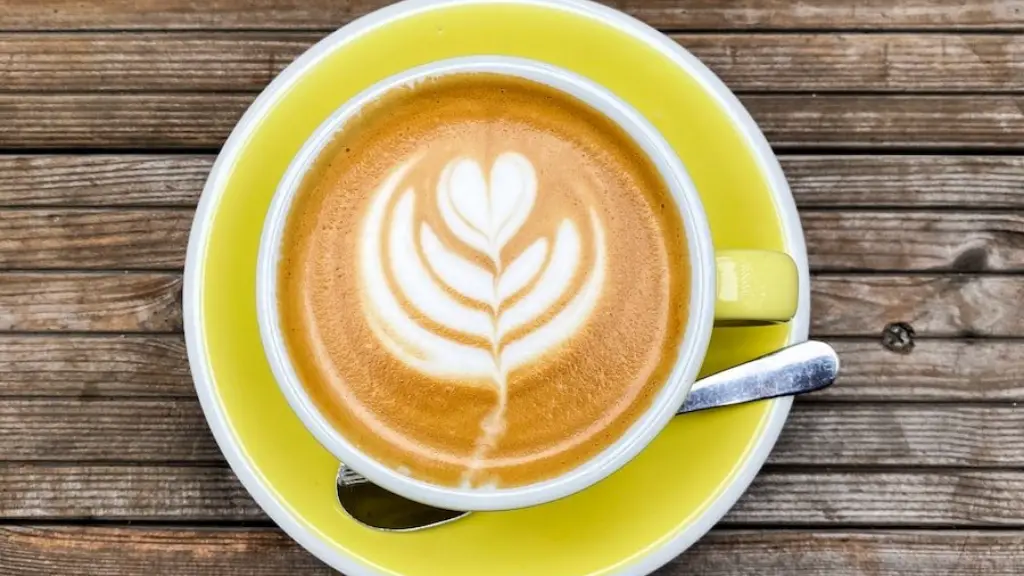Caffeine Consumption & its Effects on Health
Coffee is a beverage that has been enjoyed by people across the globe for centuries, and it’s no surprise that it remains so popular even today. Caffeine is the main ingredient in coffee, and as such it is widely used to increase people’s alertness and energy levels. While caffeine can be beneficial, it is important to be aware of the health effects associated with regular consumption.
Depending on the type of coffee, one 8-ounce cup can contain between 95 to 200 mg of caffeine. The amount of caffeine depends on the type of beans used, the way the beans are roasted, and the brewing method. Short servings of espresso or filtered coffee, for example, can contain as much as 200mg of caffeine, while a cup of decaffeinated coffee contains as little as 2 to 5 mg of caffeine. It is important to understand that each cup of regular coffee will contain a different amount of caffeine depending on the brewing method.
In general, it is recommended that people should limit their daily consumption of caffeine to 400 mg per day. This means that the average person could safely consume up to four cups of regular coffee a day. However, it is important to keep in mind that some people are more sensitive to caffeine and may feel more adverse effects from smaller doses. In addition, people who regularly drink coffee may develop a tolerance for the caffeine, which may cause them to need more to achieve the same effect.
When consumed in moderation, caffeine can have beneficial effects on the body. It can increase alertness, improve focus, and boost energy levels. However, there can be some adverse effects associated with excessive caffeine consumption. These side effects can include dizziness, headaches, stomach upset, and increased heart rate. It is important to remember that these effects can vary from person to person.
If you are concerned about your caffeine intake, it is a good idea to talk to your healthcare provider. Your doctor can help you assess your individual needs and factors to determine what is best for your health. Also, it can be helpful to keep track of how much caffeine you are consuming and to pay attention to any signs that you may be having too much.
Caffeine & Mental Health
In addition to its physical effects, caffeine can also have an impact on mental health. Studies have shown that people who drink coffee on a regular basis tend to have higher levels of alertness and energy, as well as improved mood. However, too much caffeine can lead to feelings of anxiety, irritability, and tension. It can also exacerbate existing mental health issues, such as depression and anxiety.
Excessive caffeine intake can also lead to a lack of sleep, which can be detrimental to both physical and mental health. Caffeine can stay in the body for up to six hours, so it is important to be aware of how much you drink and when you drink it. It is best to avoid drinking coffee late in the day so that it does not affect your sleep patterns.
Finally, it is important to remember that good mental health is dependent on a balance between lifestyle, diet, and controlling stress. While coffee can have positive effects, too much caffeine can have the opposite effect. It is best to find the balance that works for your individual needs and be mindful of your caffeine intake.
Alternatives to Coffee
If you want to reduce your coffee consumption but still want to enjoy the flavorful taste of coffee, there are several alternatives available. Herbal teas, such as ginger and peppermint, are a great option to get the flavor without the caffeine. If you still want the caffeine boost, caffeine-free teas, such as rooibos or chai, are a great option.
In addition, many people enjoy drinking smoothies as an alternative to coffee. Adding fresh fruits, vegetables, and nuts to your smoothies can provide a great energy boost without the caffeine. Juices made from natural fruits and vegetables such as oranges, apples, and carrots can also be a good alternative.
Finally, drinking more water throughout the day is an easy way to stay hydrated and energized. This is especially important for people who work long hours, as dehydration can make you feel sluggish and tired. Drink plenty of water throughout the day to keep your body hydrated and your mind alert.
Positive Changes from Reducing Coffee Intake
Cutting back on your coffee intake can have several positive effects on your overall health. You may find that you have more energy and are better able to concentrate throughout the day. Reducing your caffeine intake can also reduce your risk of headaches, as well as reduce your risk of high blood pressure and heart disease.
In addition, reducing your coffee intake can help to reduce stress levels. Too much caffeine can lead to feelings of jitteriness, restlessness, and anxiety. Reducing your intake can help to decrease these feelings and allow you to relax more easily.
Finally, reducing your coffee intake can also help to improve your sleep. While the caffeine in coffee can increase energy levels, it can also interfere with your body’s natural sleep cycle. By cutting back on your coffee intake, you may find that it is easier to fall asleep and stay asleep throughout the night.
Conclusion
Coffee is a popular beverage that many people enjoy, but it is important to be aware of the health effects associated with regular consumption. It is best to limit your daily caffeine intake to 400 mg per day, which equates to about four 8-ounce cups of regular coffee. Alternatives to coffee are available, such as herbal teas, smoothies, and juices. Reducing your coffee intake can have positive effects on your health, including increased energy levels, improved concentration, and improved sleep. It is important to find the balance between caffeine and other sources of energy to ensure that you are getting the most benefits while minimizing any potential risks.



